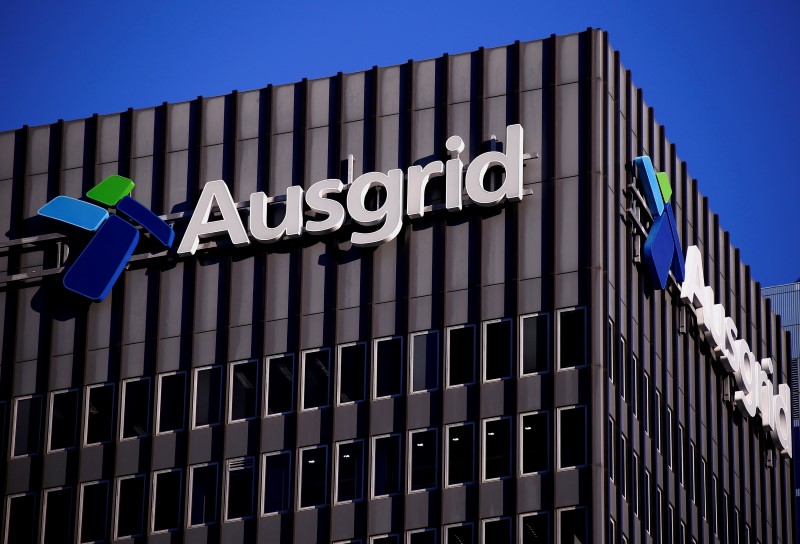By Sonali Paul
MELBOURNE, May 7 (Reuters) - Battery makers worldwide are watching to see whether Australia's most wind power-dependent state can keep the lights on by installing grid-scale batteries by December, which could help drive the growth of renewable energy across Australia and Asia.
A decade-long political stalemate in Australia over energy and climate policy has effectively led to power and gas shortages and soaring energy prices threatening industry and households.
If batteries help solve Australia's problems by storing surplus electricity generated by wind and solar power, countries like Indonesia, the Philippines and Chile, could follow suit.
"I call South Australia the 'perfect storm' opportunity for energy storage," said Ismario Gonzalez, global sales director for AES Energy Storage, an arm of U.S. firm AES Corp AES.N , which has installed or is working on battery projects in seven countries, including Australia.
The more dependent the grid is on intermittent sources like wind and solar, the more flexible the back-up sources need to be. That's the appeal of battery storage. It can be switched on and off easily, responding faster than a gas peaking plant.
The state of South Australia, where wind and rooftop solar make up 44 percent of power sources, urgently needs to install big batteries after suffering blackouts over the past year.
It has little back-up as coal-fired power plants in the state have shut due to the rapid expansion of renewable energy. That has made it more dependent on power from neighbouring Victoria, its only link to Australia's national electricity market.
The state government plans to spend A$150 million ($115 million) supporting the installation of 100 megawatt hours of battery capacity this year, which would be the world's second-largest battery system behind one installed by AES for California's San Diego Gas & Electric Co SDGE.UL in February.
South Australia has yet to name a shortlist of bidders, after having received 90 expressions of interest from more than 10 countries. So by the time it signs contracts, the winner or winners will have only six months to meet a December deadline. [factbox: L4N1I51XB]
At the same time, the state of Victoria is tendering to support construction of 100 MWh of battery capacity to be delivered in two stages by 2018.
AES says lessons learned in South Australia could be applied in Victoria, which is facing the loss some coal-fired power, and elsewhere, like Chile, where solar power is growing rapidly and will need to be combined with energy storage to avoid outages.
COSTS DROPPING FAST
Stiff competition for the two state battery projects, with all the big makers like South Korea's Samsung (KS:005930) SDI 006400.KS and LG Chem 051910.KS , Elon Musk's Tesla Inc TSLA.O and U.S. firm Greensmith Energy in the running, will help drive down prices for energy storage, another factor that should speed the spread of batteries along with wind and utility-scale solar.
"Combined renewable energy generation and storage solutions are becoming genuine competitors with fossil fuel base load generation. This will be the real game changer," said Josh Carmody, head of Australia for Equis Energy.
Equis Energy, a fund set up by former Macquarie bankers to invest in renewable energy projects around Asia, is building a large-scale solar farm in South Australia and is seeking state funding for batteries at the project.
Carmody said safety and performance problems as well as cost had limited the use of batteries in the energy supply system to date, but those challenges were being overcome rapidly.
For battery providers, the money making opportunity will come not only from energy storage but crucial extra services to manage voltage and frequency on grids, several energy storage executives said.
"Projects such as those in South Australia and California demonstrate that there is now significant growth to come in the grid support sector," said Bruce Cole, East Penn's senior vice president, industrial sales.
Costs have come down 90 percent over the past 10 years, AES Energy Storage vice president Brian Perusse said. Industry officials estimated 100 MWh of battery capacity could be supplied for $700 to $1,000 per kilowatt hour.
That's much higher than an offer made by Elon Musk on social media to supply batteries to South Australia for $250 per kilowatt hour. However that figure probably didn't include costs of equipment needed to hook the system up, like transformers, said AES's Gonzalez.
"The analogy I like to use is: that's a Tesla car with no wheels and no battery, no interconnection," Gonzalez said.
Asked for a response, a Tesla spokesman in Australia referred to the cost estimate tweeted by Musk and had nothing to add.
($1 = 1.3323 Australian dollars)
<^^^^^^^^^^^^^^^^^^^^^^^^^^^^^^^^^^^^^^^^^^^^^^^^^^^^^^^^^^^ Australia's National Electricity Market
http://tmsnrt.rs/2pGZWtk
^^^^^^^^^^^^^^^^^^^^^^^^^^^^^^^^^^^^^^^^^^^^^^^^^^^^^^^^^^^>
